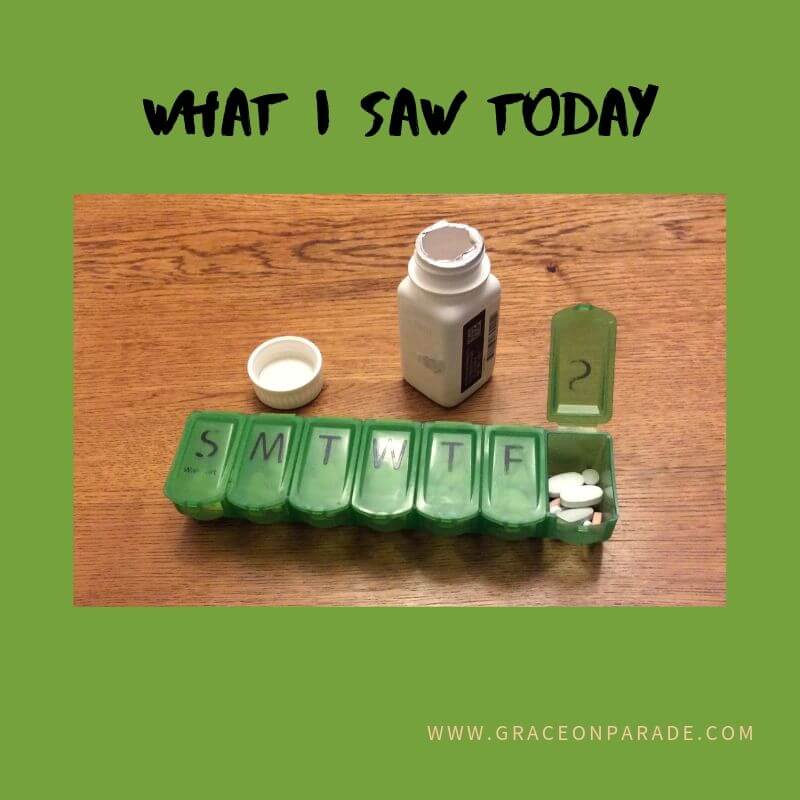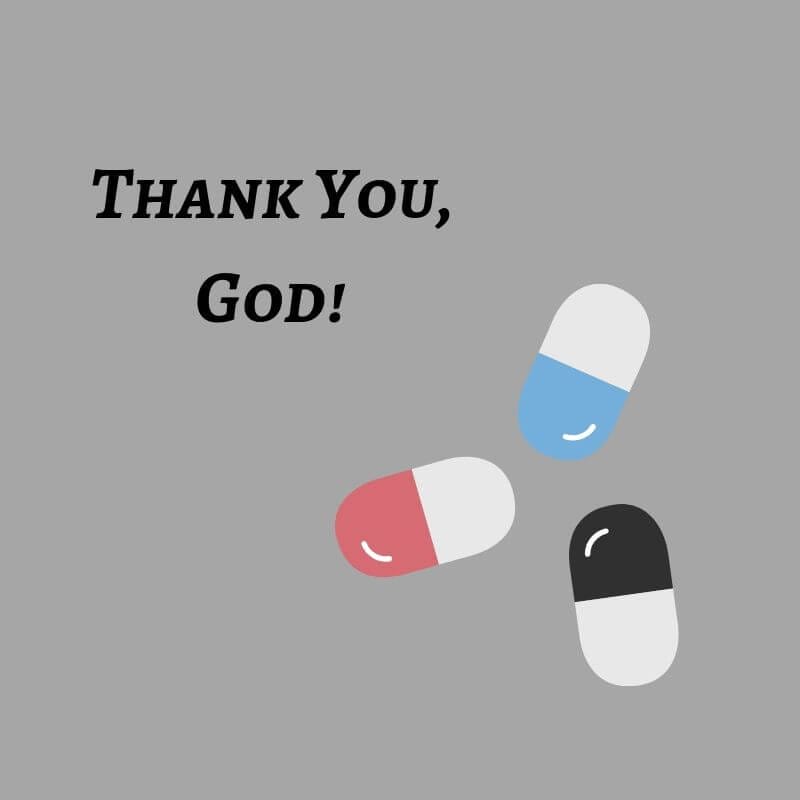Today, I saw my husband’s medication.
That may seem like such a small ordinary thing to be able to see. But I am so grateful.
In any marriage, a couple learns to divide up household chores depending on expertise and availability – who has the time and who has the know-how. In our marriage, my husband Jack gets to mow the lawn and take care of the finances. Among other tasks, I get to organize what we call his Pill-Minder. My fingers are much smaller and more dexterous, and I have a better sense of detail than he does. In spite of my visual limitation, we find it easier for me to mind the Pill-Minder.
Why do pills have to come in so many colors and shapes?
One of my Facebook friends once questioned why pills had to come in such a variety of sizes and shapes. After several others commented, I pointed out that, for people who must take a lot of different pills throughout the day, the various shapes and colors help identify medication. When labels are already hard to read, remembering that the blood pressure pill is pink and the Metformin is a big white honker makes pill identification so much easier. “I didn’t think of that,” my Facebook friend responded, and the conversation ceased.
Pill I.D. can still be difficult. Sometimes there’s just a slight variation between the dusky rose tubular shaped blood pressure pill and the coral elliptical blood thinner pill. Yet, one morning as I filled Jack’s pill-minder, I was overwhelmed with gratitude that I am able to see his pills at all and that I can bless my husband in this way.
Three years ago, before the surgery that gave me better vision than I’ve ever had before, I couldn’t see well enough to even sort socks. Thank you, Lord, that I can see pills.
My gratitude took another step. We are so blessed that we have medication to take. Without them, my husband’s health would be far worse. All those crazy shaped pills give him a lease on life.
Amy Carmichael’s Take
Their presence reminded me of a story in Amy Carmichael’s biography, A Chance To Die: The Life and Legacy of Amy Carmichael by Elizabeth Elliot. Along-term and well-loved missionary in India who spent her life rescuing abandoned children on the steps of Hindu Temples, Amy suffered from a variety of health issues the final ten years of her life, requiring her to spend much of her time confined to her room. When handed her medicine, the author relates, Amy would cup it in her hands, bow her head, thank God for the medication, and ask God’s spirit to partner with its intended purpose to bring health and healing.
That’s not a bad idea.
Imagine the impact on our health if we approach our medical care with gratitude instead of worry. Scientific studies have already proven how stress can aggravate health conditions. Worry tenses the body. Tension causes muscles to tighten. Tight muscles intensify pain levels. Philippians 4:7,8 encourages us to replace worry with prayer and thanksgiving. Daily medication can become a wonderful, tangible prompt to praise the God who has the power to partner with medical care to bring us strength and healing.
If you take any kind of drug for health reasons, try doing what Amy Carmichael did. Thank God that
- You can see your medication.
- There is medication to see.
Finally, thank God that He is the Great Physician. He is the architect and engineer of your body, He knows all that is happening inside it, how it is malfunctioning, and how it can be fixed. He has the power to amplify the impact of the drugs you take.
How can we pray for your health needs this week? Share in the comments below.



Leave a Reply